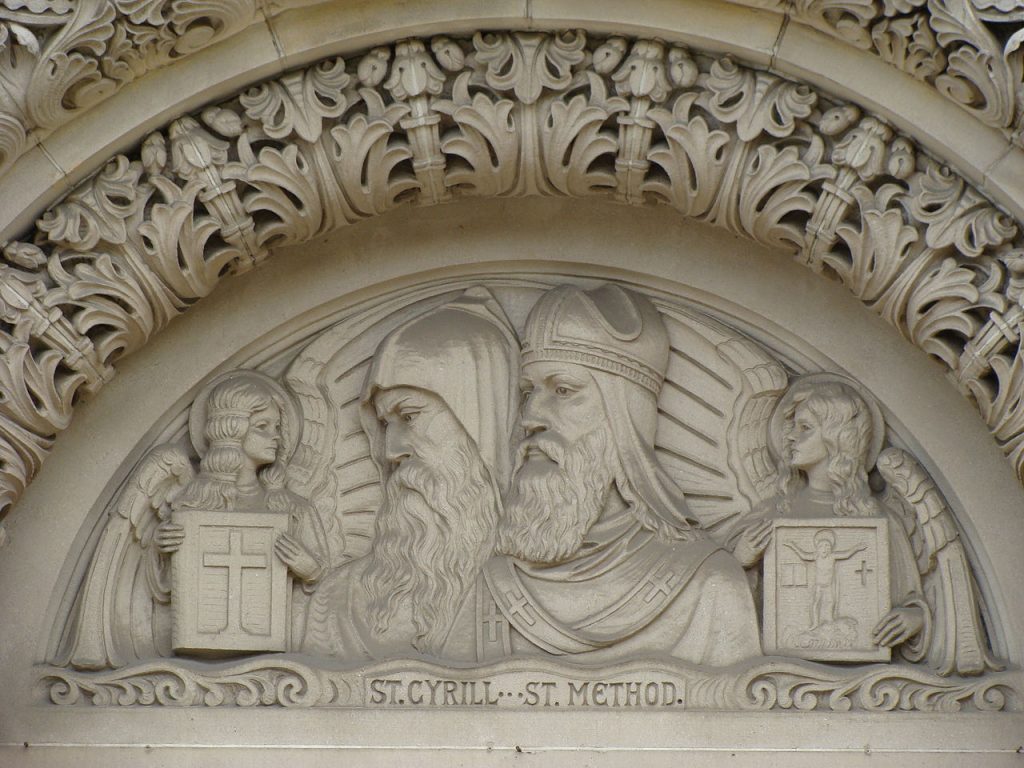Growing up, their names were Constantine and Michael. But in time they would take vows and then take the names we’ve come to know them by: Cyril and Methodius.
They were brothers, born in a city that had been evangelized by St. Paul: Thessalonica. Their family was of the ruling class. Their father died when they were very young, but not before entrusting his sons to the care of a family friend who was a court official. The boys received an excellent education, and answered the call to civil service.
Both brothers undertook diplomatic missions on behalf of the emperor. At that time, such missions also involved explaining and defending Christianity to the courts of non-Christian rulers. They became effective apologists. They also decided to place their entire lives at the service of Jesus Christ. Both were celibate. Both, in time, were ordained to the priesthood.
Why do I bring them up? Well, because their feast day, Feb. 14, rather neatly bisects this month. And we can look to them as exemplars of what we Catholics should be doing today.
Cyril and Methodius lived long years, but they’re known to history for what they accomplished in just five of those years.
In A.D. 862 they arrived in Moravia at the invitation of the ruling prince. He wanted them to Christianize his country. His people had already accepted baptism, but the local church was in disarray, and the people still clung to many old pagan customs.
Cyril and Methodius saw what was needed: a transformation of culture. And that had to be built on a strong religious foundation. The people needed the Scriptures, and they needed the liturgy. But there was no local literary tradition. And so there was no alphabet for setting down the Bible and the Mass in the language of the people.
That did not deter the brothers. They cobbled together an alphabet out of odds and ends of other languages. Then they set about the work of translation. And while they were at it, they composed the country’s first legal code, too. What they laid down has served as the foundation not only of all the Slavic languages, but all of Slavic culture.
Cyril and Methodius accomplished all of this in the course of a five-year mission.
These men put everything they had at the service of Jesus Christ. And their story is hardly unique. So many written languages and national cultures owe their foundations to the zeal of Christian clergy who were on fire to communicate the gospel and the riches of the liturgy.
Don’t you think our culture would benefit from the witness of Catholics like Cyril and Methodius? What are you and I doing to make it happen?
The arm of God has not been shortened in 12 centuries. The great renewal can begin now and begin with you and me, if we correspond to the grace God wants to give us.

